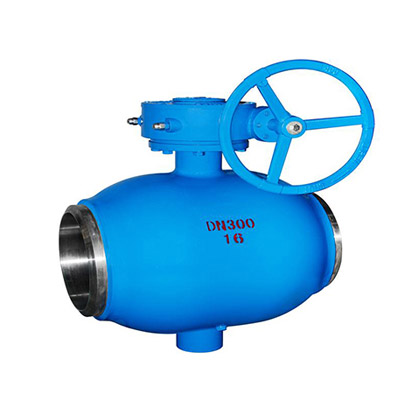Login

Login

Oct. 16, 2024
Fully welded ball valves are designed for superior durability, making them highly resistant to wear and tear, even under extreme operating conditions. The welded body eliminates potential leak paths, ensuring that the valve remains intact for long-term use. This makes them ideal for industries where long-term reliability is crucial, such as oil and gas pipelines or chemical processing plants. End users can expect extended valve life with minimal maintenance, reducing downtime and maintenance costs.
One of the key advantages of a fully welded ball valve is its excellent leak prevention. Since the valve body is welded together without any flanged or bolted joints, the possibility of leakage through the body joints is eliminated. This feature is particularly beneficial for applications involving high-pressure fluids or hazardous materials, where even the smallest leak can lead to significant safety concerns or financial losses. By ensuring a secure seal, these valves provide peace of mind for operators and engineers alike.
Fully welded ball valves require less maintenance compared to other types of valves. The absence of body gaskets and bolted connections means fewer parts that need to be monitored or replaced. This reduction in components also decreases the chances of failure over time. In industries where frequent valve maintenance can disrupt operations, the low-maintenance design of fully welded ball valves offers significant operational advantages.

Despite their robustness, fully welded ball valves are known for their compact and lightweight design. The fully welded construction eliminates the need for additional components, reducing the valve's overall weight. This makes them easier to install and reduces the space required within the system. For projects where space is limited or where weight is a concern, such as offshore platforms or underground pipelines, the compact nature of these valves provides a significant benefit.
See also:Fully welded ball valves are designed to perform in extreme conditions, such as high pressures, temperatures, and corrosive environments. The welded body construction provides enhanced resistance to external stresses, ensuring that the valve maintains its integrity even under challenging conditions. This is particularly important in industries such as petrochemical and natural gas processing, where extreme temperatures and pressures are the norm. These valves can operate reliably for years without the need for frequent replacements or repairs.
Although fully welded ball valves may have a higher upfront cost compared to other valve types, their long-term cost-effectiveness makes them a preferred choice for many industries. With their extended service life, reduced need for maintenance, and superior leak prevention, fully welded ball valves help companies save money over time. Additionally, the lightweight design can lead to savings in installation and transportation costs, further enhancing their economic appeal.
Thanks to their durability, leak-proof design, and ability to operate under extreme conditions, fully welded ball valves are suitable for a wide range of applications. From oil and gas pipelines to district heating systems and chemical processing, these valves are versatile enough to meet the demands of various industries. Their ability to handle high-pressure fluids, combined with their maintenance-free operation, makes them an ideal solution for both high-demand industrial environments and critical safety applications.
Fully welded ball valves offer numerous advantages for industrial applications, from their enhanced durability and leak prevention to their low maintenance requirements and superior performance in extreme conditions. While they may come at a higher initial cost, their long-term benefits, including reduced downtime, cost savings, and reliable operation, make them an excellent investment for any industrial project. By choosing the right fully welded ball valve, customers can ensure the safety, efficiency, and longevity of their operations.
59 0 0
Join Us

Comments
All Comments ( 0 )